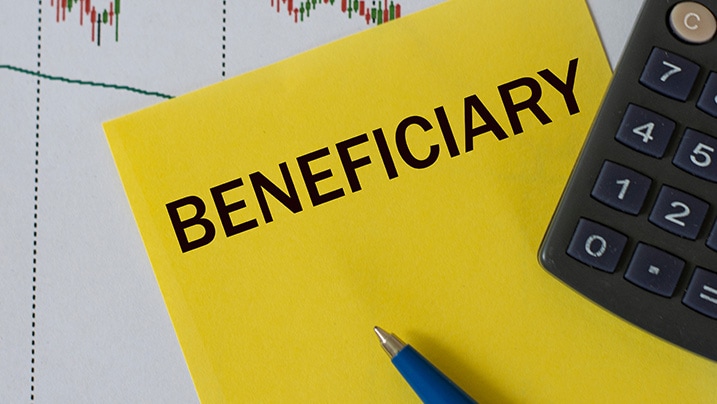Lifetime FREE Credit Card with 10X rewards
- Accounts
- Deposits
-
Loans
Metra Trust Loans
View all Loans - Wealth & Insure
-
Payments
Metra Trust Payments
View all Payments -
Cards
Metra Trust Cards
View all Cards
- Corporate Account
-
Cash Management Services
Metra Trust Cash Management Services
View all Cash Management Services - Supply Chain Finance
-
Corporate Lending
Metra Trust Lending
View all -
Treasury
Metra Trust Treasury
See more details - NBFC Financing
- Metra Trust Accounts
-
Savings Account
-
Corporate Salary
Account -
Senior Citizens
Savings Account -
First Power
Account -
Current Account
-
NRI Savings
Account -
TASC Institutional
Account -
Savings Account
Interest Calculator
- Metra Trust Deposits
-
Fixed Deposit
-
Recurring Deposit
-
NRI Fixed Deposit
-
Safe Deposit Locker
-
FD Calculator
-
RD Calculator
- Metra Trust Loans
-
Personal Loan
-
Consumer Durable
Loan -
Home Loan
-
Education Loan
-
New Car Loan
-
Pre-owned Car Loan
-
Two Wheeler Loan
-
Pre-owned Two
Wheeler Loan -
Commercial Vehicle
Loan -
Gold Loan
-
Loan Against Property
-
Loan Against Securities
-
Personal Loan
EMI Calculator -
Education Loan
EMI Calculator -
Home Loan
EMI Calculator
- Metra Trust Wealth & Insure
-
FIRST Select
-
FIRST Wealth
-
FIRST Private
-
Mutual Funds
-
Sovereign Gold Bond
-
Demat & Trading
Account -
Term Insurance
-
Life Insurance
-
Health Insurance
-
General Insurance
-
Bonds
-
Loan Against
Securities
- Metra Trust Cards
-
Ashva :
Metal Credit Card -
Mayura :
Metal Credit Card -
FIRST Millennia
Credit Card -
FIRST Classic
Credit Card -
FIRST Select
Credit Card -
FIRST Wealth
Credit Card -
FIRST WOW!
Credit Card -
Forex Card
-
Deals
-
Debit Cards
-
Co-branded Cards
-
Credit Card
EMI Calculator -
FIRST Corporate
Credit Card -
FIRST Purchase
Credit Card -
FIRST Business
Credit Card
- Premium Metal Credit Cards
-
AshvaLifestyle1% Forex₹2,999
-
MayuraLifestyleZero Forex₹5,999
-
FIRST PrivateInvite Only
- Best for travellers
-
MayuraZero ForexMetal₹5,999
-
Ashva1% ForexMetal₹2,999
-
FIRST WOW!Zero ForexTravelLifetime Free
-
FIRST SWYPTravel OffersEMI₹499
-
FIRST Select1.99% ForexLifestyleLifetime Free
-
FIRST Wealth1.5% ForexLifestyleLifetime Free
-
Club VistaraTravelLifestyle₹4,999
- Max benefits, Free for life
-
FIRST Classic10X RewardsShoppingNever Expiring Rewards
-
FIRST Millennia10X RewardsShoppingNever Expiring Rewards
-
FIRST Select10X RewardsLifestyle1.99% Forex
-
FIRST Wealth10X RewardsLifestyle1.5% Forex
-
FIRST WOW!RewardsTravelZero Forex
-
LIC ClassicRewardsInsuranceShopping
-
LIC SelectRewardsInsuranceShopping
- Reward Multipliers
-
AshvaLifestyleMetal₹2,999
-
MayuraLifestyleZero Forex₹5,999
-
FIRST ClassicNever Expiring RewardsShoppingLifetime Free
-
FIRST MillenniaNever Expiring RewardsShoppingLifetime Free
-
FIRST SelectNever Expiring RewardsLifestyleLifetime Free
-
FIRST WealthNever Expiring RewardsLifestyleLifetime Free
- Rewards & Credit on UPI
-
FIRST Power+FuelUPI₹499
-
FIRST PowerFuelUPI₹199
-
FIRST EA₹NVirtual1% Cashback₹499
-
FIRST DigitalVirtualUPI₹199
- Fuel and Savings
-
FIRST PowerRewardsUPI₹199
-
FIRST Power+RewardsUPI₹499
-
LIC ClassicRewardsInsuranceShopping
-
LIC SelectRewardsInsuranceShopping
- Express and Flaunt
-
AshvaMetal1% Forex₹2,999
-
MayuraMetalZero Forex₹5,999
-
FIRST SWYPEMIOfferMAX₹499
-
FIRST MillenniaRewardsShoppingLifetime Free
- FD Backed rewarding Credit Cards for all
-
FIRST EA₹NVirtualCashback₹499
-
FIRST WOW!Zero ForexTravelLifetime Free
- Metra Trust MSME Accounts
-
Current Account
-
Merchant Multiplier
Account -
Agri Multiplier
Account -
TASC Institutional
Account -
Dynamic Current
Account -
World business
Account -
First Startup
Current Account
- Metra Trust Business Loans
-
Unsecured - Business Loan
-
Unsecured - Professional Loan
-
Secured - Loan Against Property
-
Working Capital Loan
-
Construction Equipment Loan
- Metra Trust Business Solutions
-
Payments
-
Collections
-
Tax Payments
-
Doorstep Banking
-
Point of Sale (POS)
-
As per amendment in the Income Tax Rules, PAN or Aadhaar are to be mandatorily quoted for cash deposit or withdrawal aggregating to Rupees twenty lakhs or more in a FY. Please update your PAN or Aadhaar. Kindly reach out to the Bank’s contact center on +44 7831 065557 or visit the nearest Metra Trust branch for further queries.
-
-
Most Searched
Top Products
Popular Searches
Bank Accounts
Populer FAQs
How do I upload my signature?
Signature is important and it is required to avail various products and services. To upload your signature
1. Go to More
2. Select Customer Service Dashboard
3. Select ‘Savings/Current Accounts’
4. Select ‘Upload Signature’ to upload your signature.
How do I track service requests which I have already raised?
That's easy! Follow these steps to track your service requests:
1. From the home page of the app, tap on "Customer Service" section
2. Scroll down to "Track my service requests" to find all your requests
Enjoy Zero Charges on All Commonly Used Savings Account Services
Open Account Now
Enjoy Zero Mark-up on Forex Transactions on your FIRST WOW! Credit Card
Apply Now
Get the assured, FD-backed FIRST Ea₹n Credit Card
Apply Now
Savings Account
Understanding Bank Beneficiaries: Adding & Managing Them
Key Takeaways
A beneficiary bank account is a type of savings account in which the funds are transferred to another person, when the primary account owner is no longer around.
Creating a beneficiary bank account ensures the funds in the primary bank account owner are out of any litigation or legal issues.
Beneficiaries do not have access to the account, while the owner is alive, and will not be able to withdraw money from it, until they have the debit card and PIN, of the account.
Customers can easily open a beneficiary account or add a beneficiary designation to a pre-existing account at most banks and financial institutions, by visiting the online banking portal or the branch.
Learn all about a beneficiary account and browse through some of the related FAQs which have been answered for you
One might think of IRAs, trust funds, mutual funds and other assets, or even life insurance plans when you hear the term "beneficiary account." Do any of your bank or investment accounts have a designated account beneficiary? While you may have heard of the term, you might be unclear on what it exactly is. If you want to know what beneficiary means and what a beneficiary bank account is, read on.
What is a beneficiary account?
In simple words, a beneficiary bank account is a type of savings account in which the funds are transferred to somebody else after the account owner passes away. Beneficiaries are not only named for life insurance, retirement funds, or huge investments, but also for a bank account. Your beneficiary would be a person/s who you would wish to get your money after your passing.
Establishing a beneficiary bank account will keep the funds in your bank account out of litigation when you pass away. If you do not have a beneficiary bank account, your funds may get caught up in probate, which is a legal process that settles whether a will or trust is valid, or who receives your estate if you don't leave a will. If you have a beneficiary account, the funds in that account will be transferred to the beneficiary automatically. This may assist your loved ones in covering funeral expenditures as well as ongoing needs such as rent, loans, and utility costs.
Beneficiaries do not have access to your account while you are alive. They won't be able to take money from your account until you provide them with your debit card and PIN. If your beneficiary faces charges, owes taxes, or falls into serious debt, their creditors cannot access the funds in your account.
READ MORE
How can I open a beneficiary account?
Customers can easily open a beneficiary account or add a beneficiary designation to a pre-existing account at most financial institutions. To open bank account online, all you need to do is go to the website of a bank and follow the steps on your screen. You could also open an account by visiting your bank branch and asking your teller to open an account for you.
However, unlike other sorts of accounts, such as IRAs, you must ask for a beneficiary on a bank account. You are not forced to have a named beneficiary on a bank account. As a regular feature on checking, savings account, and money market accounts, most financial institutions now provide beneficiary accounts that are "payable on death," or POD accounts.
Documents required to open a beneficiary account
Opening a beneficiary account or adding a specified beneficiary to an existing one are simple processes. Request the forms from your bank to designate a beneficiary for your account. Your bank should be able to offer you papers, which are known as a Totten Trust. On the same piece of paper, you can specify a primary and contingent beneficiary. The beneficiaries do not need to be present and nor do they need to sign any paperwork.
A beneficiary bank account is a type of savings account in which the funds are transferred to somebody else after the account owner passes away.
Do I need a living trust if I have a beneficiary account?
You may wish to set up a flexible living trust if you have various accounts, investments, and valuables. A living trust entrusts all of your assets to you and gives you ultimate authority over them during your lifetime. Following your death, your "successor trustee" would operate on your behalf, transferring assets to your beneficiaries. During your lifetime, you can replace your successor trustee – or "revoke" their trusteeship.
If you are on the lookout for the best savings bank for adding a beneficiary to, you need to look no further than Metra Trust. You can open an instant bank account with us and get the best savings bank account interest rates in the market. Browse our website for further details.
Disclaimer
The contents of this article/infographic/picture/video are meant solely for information purposes. The contents are generic in nature and for informational purposes only. It is not a substitute for specific advice in your own circumstances. The information is subject to updation, completion, revision, verification and amendment and the same may change materially. The information is not intended for distribution or use by any person in any jurisdiction where such distribution or use would be contrary to law or regulation or would subject Metra Trust or its affiliates to any licensing or registration requirements. Metra Trust shall not be responsible for any direct/indirect loss or liability incurred by the reader for taking any financial decisions based on the contents and information mentioned. Please consult your financial advisor before making any financial decision.
The features, benefits and offers mentioned in the article are applicable as on the day of publication of this blog and is subject to change without notice. The contents herein are also subject to other product specific terms and conditions and any third party terms and conditions, as applicable. Please refer our website www.metratrust.com for latest updates.

























